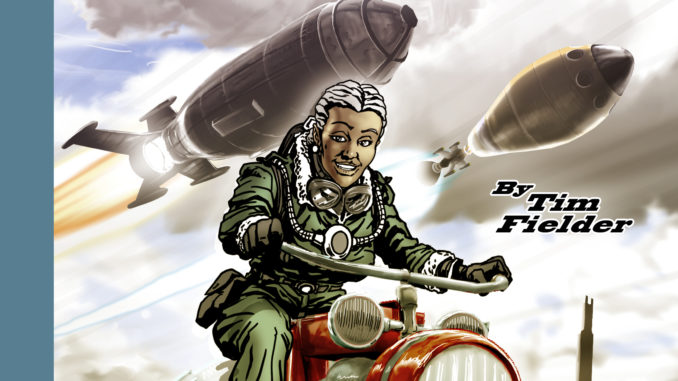
Love in part is described in the bible as not insisting on its own way or not rejoicing in wrongdoing but in the truth. What happens when the love of your life, your everything is ripped from you? Tim Fielder’s graphic novel Matty’s Rocket gives an Afrofuturistic, Black Speculative journey to answering that question. Afrofuturism and Black Speculative fiction include elements of science fiction and horror imagining a future with Black people in it. Not only surviving but thriving. This doesn’t mean that Afrofuturism is the definition of utopia. Utopia exists as a concept, but it’s not an actual place. Even the fictional African nation Wakanda from the 2018 film ‘Black Panther’ has a civil war. Rather, Afrofuturism can show the politics and societal threats from a Black perspective by mixing the diaspora of descendants from Africa. Where does love fit into this Afrofuturist narrative of a Black woman who became a space pilot?
The Klan, Jim crow, the micro and macro-aggressions of racism not to mention alien abductions all exist within ‘Matty’s Rocket.’ But Matty Delores Watty refuses to have her life characterized by the lens of the negative forces that swirl around her. Rather, it’s the love of her father that defines her purpose. The comic begins in black and white in a futuristic art deco-style looking Manhattan in 1968. Matty is being interviewed for a book of her life. Told in flashbacks and the present, Matty looks like your wise, knowledgeable, been through it all aunty. She’s illustrated with gravitas reverberating throughout every fiber of her being. You can hear her voice as she tells her biographer about her childhood and when she receives her pilot’s license. It’s so striking how Fielder mixes muted color tones to some parts of Matty’s childhood and stark black/white panels for when she’s an adult. Still, what can be perceived as the most defining moment of Matty’s life when she reflects on it and when the reader sees her in flashback as a young girl all the panels are in black and white. It’s a multilayered traumatic event that is punctuated by a physical loss. Just at the moment when we believe the danger is over, in the next few panels another threat comes into play. You’ll find yourself gasping, while you clutch your throat. That shocking experience immediately is followed by more trauma. It’s a wonder Matty survived her childhood. Although she does say that in that moment of peril, she no longer was that happy little girl.
Punctuated between chapters are some brilliant black-speculative movie posters of imaginary films that could be full blown stories of their own. Always starring real-life Black actors of the 1930s through the 1950s, Paul Robeson with various costars from Hattie McDaniel (the first Black woman to win an Oscar for Best Supporting Actress) to Lena Horne show an alternate reality or a what if films such as ‘Flight of the Sharecropper’s Son’ and ‘Mole Men of Harlem’ existed. It feels as if Matty may have seen these films and were inspired by them. The posters show Black people fighting against the unknown or jettisoning amidst the clouds.
Fielder uses everything from silent movie balloons to alien invasions to tell a mesmerizing story of Matty, a Black woman who becomes a superhero. Her origin story is in the vein of Bruce Wayne, Clark Kent and Peter Parker. The loss of a parental figure, her childhood in a rural area, having responsibility at a young age are what each of these male, white characters have gone through. Somehow, Matty, always the overachiever experiences all these things without Batman’s wealth and living under the yoke of racism and gender bias. This is the comic you’d wish you had if you were a little Black girl in Brooklyn growing up in the 1980’s. At least everyone can read it now.

Leave a Reply